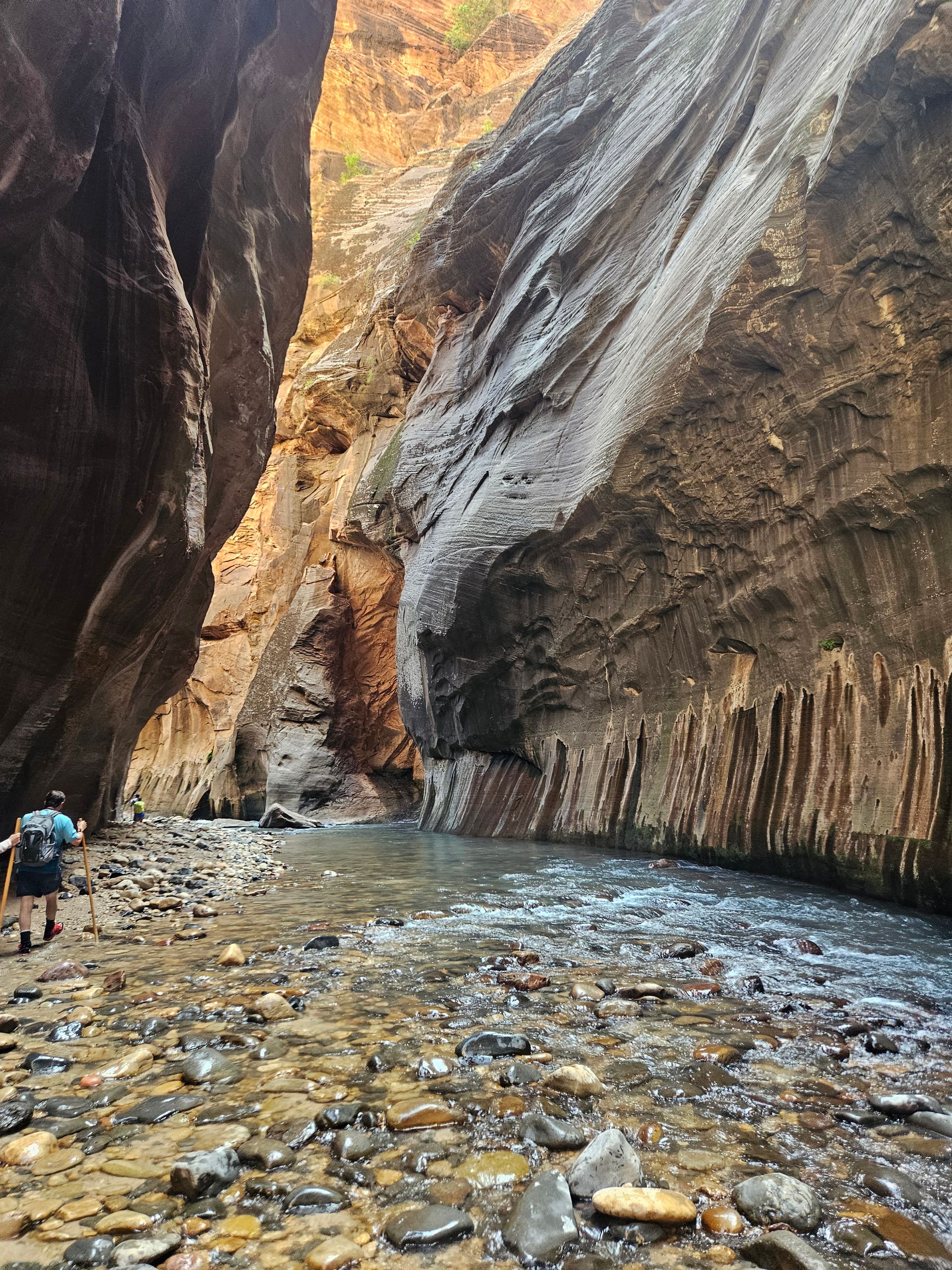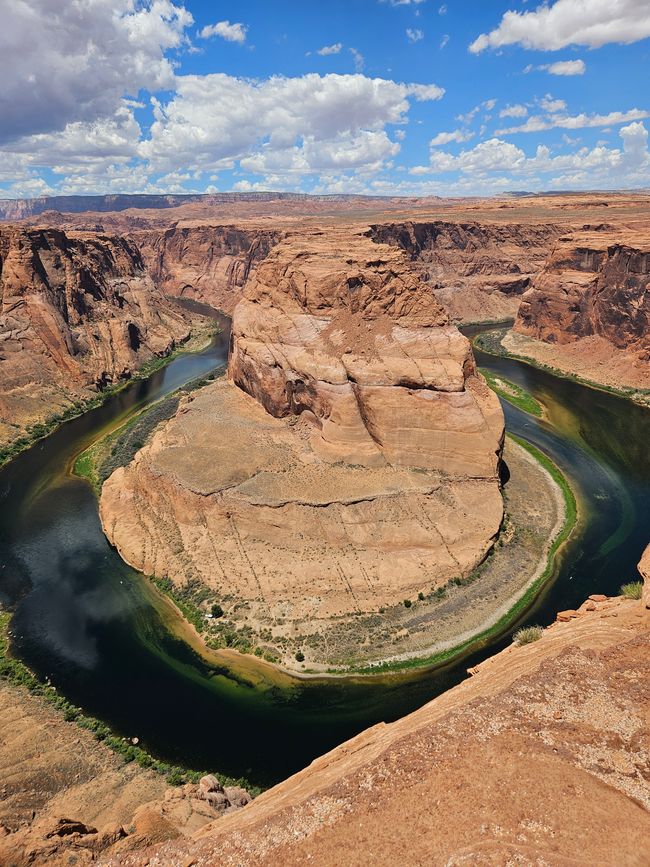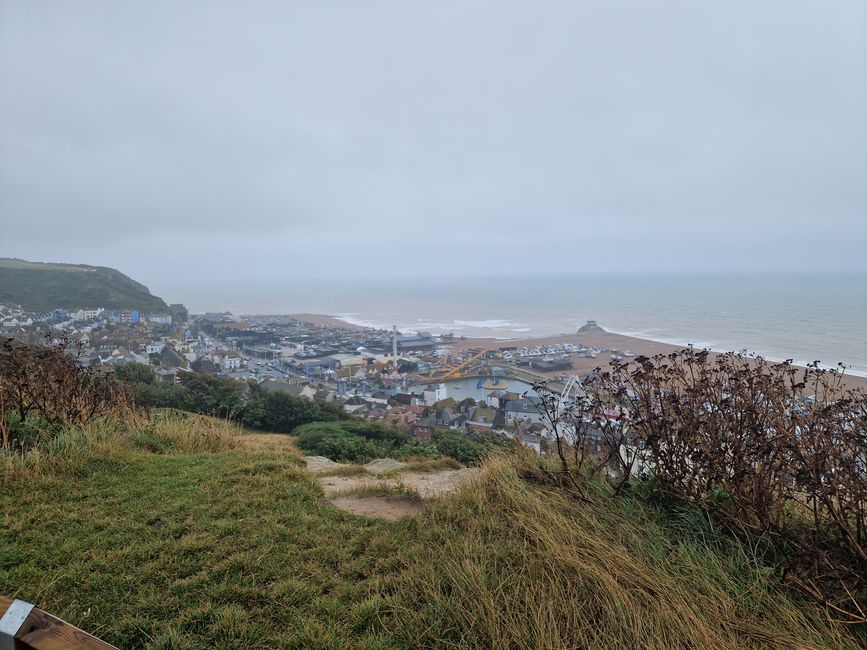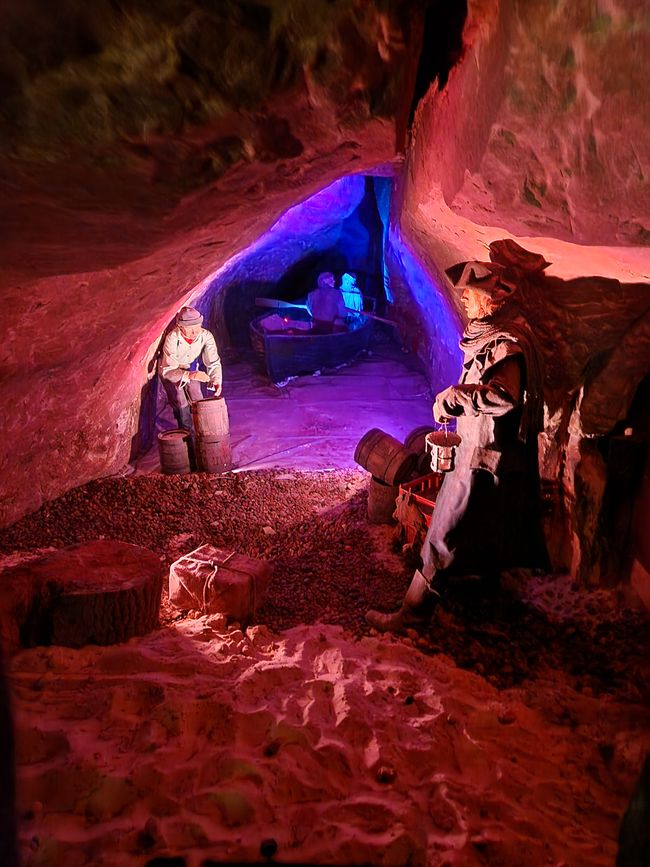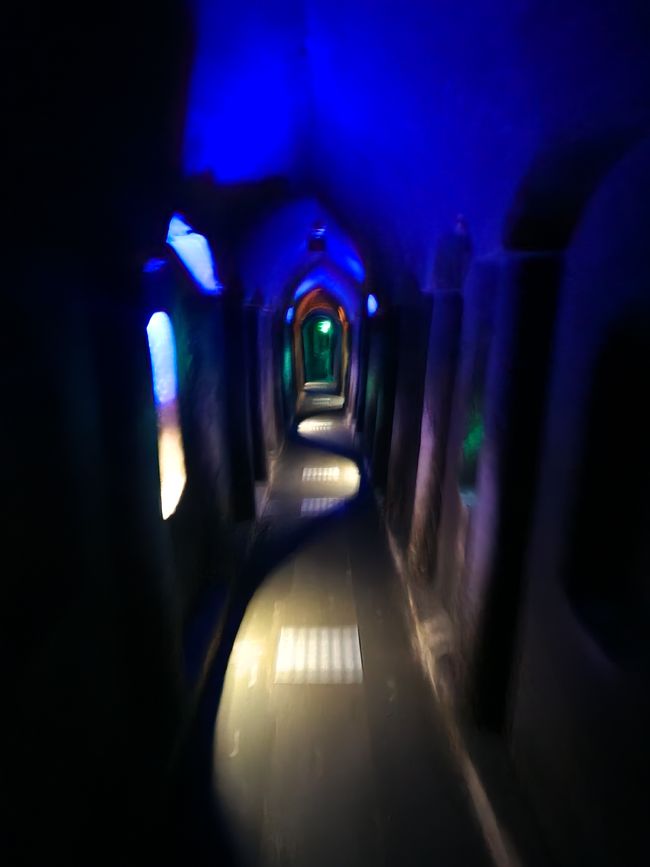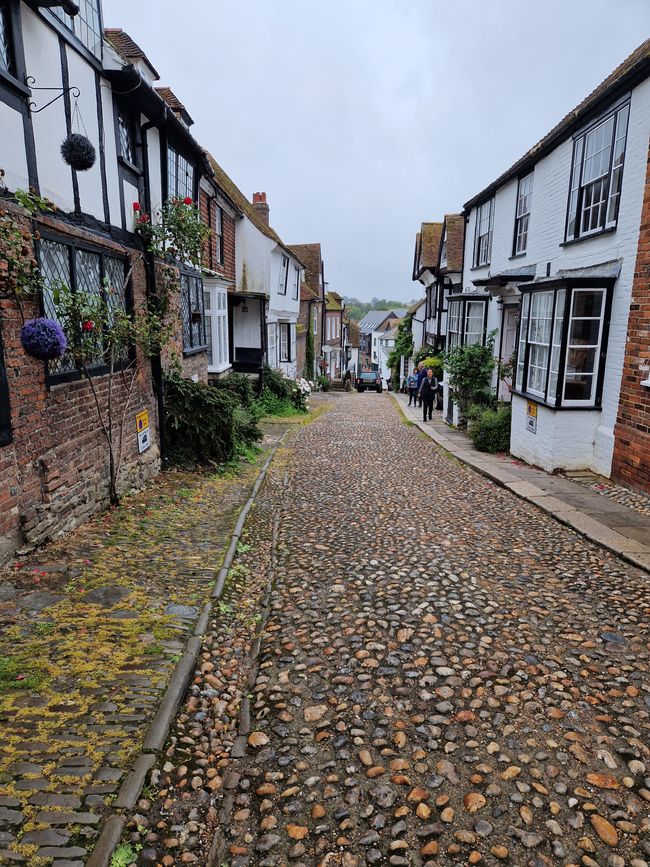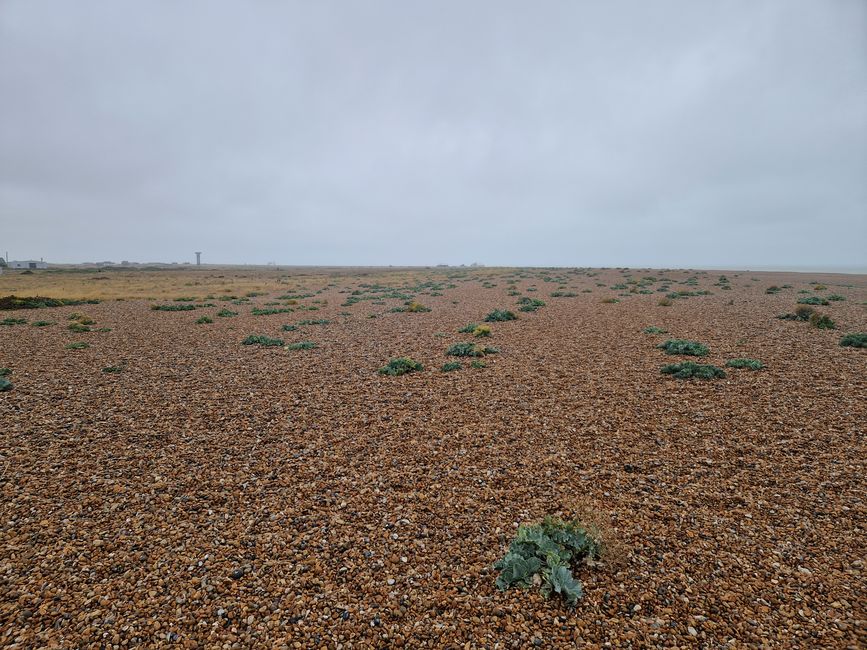Day 20: Hastings and Rye
Cyhoeddwyd: 27.07.2023
Tanysgrifio i'r Cylchlythyr
It is raining at night and continues in the morning. We first visit Hastings. The coastal town is similar to Brighton and Eastbourne, a tourist-oriented place. Time has also taken its toll on the buildings here. The wind is strong and it is raining when we find a parking space. We decide to use the paid funicular railway. It is a train that takes us up the hill to 151 meters. We pay the 13.20 pounds for all of us and can ride up and down. Unfortunately, there is no one-way trip. After a few minutes, we arrive at the top and see the English Channel and parts of Hastings. There are also castle ruins here, but we decide to visit the smugglers' cave. The caves are natural hollow spaces in the limestone, some of which have been enlarged. They were used as a storage place for smugglers between 1700 and 1836. During an audiovisual presentation in German, we learn the history of the cave and how people have lived, worked, or danced in it over the past centuries. We see many illustrative figures and learn that people secretly brought alcohol, fabrics, tea, gemstones, etc. into the country due to high duties. They used light signals and cranes for their nightly actions. A man earned more money here in the evening than a farmer did in a whole week. The government then took strong action against the smugglers. Very interesting to watch. The tour ends after an hour. The rain is very fine and immediately soaks into our clothing. We hurry back to the car. Unfortunately, we don't see the Duke of Hastings.
Now we drive another 30 minutes to Rye. A small town with many half-timbered houses, pubs and handicrafts, and very beautiful to look at. At the beginning, we have lunch in a smugglers' pub. The portions are too big for us. Then we stroll through the town with full bellies. The rain has subsided a bit, so we can enjoy it.
Afterwards, we go to Dungeness, the long spit in the English Channel. On the way, we stop briefly at Camber Sands beach. There, we find fine sand. In the other seaside resorts of the last few days, there are mostly pebble beaches. The wind and rain whip around us and we briefly watch a kite surfer riding the waves. It's uncomfortable outside, so our detour to Dungeness is also short. The land is flat with meadows and ponds in front. It is used for sheep farming. Dungeness consists of a few houses and huts, two lighthouses, a nuclear power plant in the nature reserve, and many boats on the beach. Now our drive takes almost 45 minutes and we reach our campsite. After a light dinner, we decide to go to the pub in the village and enjoy a farewell cider. We play another round of Uno together and then set off again. Luckily, it's no longer raining and it gives me hope for a calm journey on the sea tomorrow.
Now we drive another 30 minutes to Rye. A small town with many half-timbered houses, pubs and handicrafts, and very beautiful to look at. At the beginning, we have lunch in a smugglers' pub. The portions are too big for us. Then we stroll through the town with full bellies. The rain has subsided a bit, so we can enjoy it.
Afterwards, we go to Dungeness, the long spit in the English Channel. On the way, we stop briefly at Camber Sands beach. There, we find fine sand. In the other seaside resorts of the last few days, there are mostly pebble beaches. The wind and rain whip around us and we briefly watch a kite surfer riding the waves. It's uncomfortable outside, so our detour to Dungeness is also short. The land is flat with meadows and ponds in front. It is used for sheep farming. Dungeness consists of a few houses and huts, two lighthouses, a nuclear power plant in the nature reserve, and many boats on the beach. Now our drive takes almost 45 minutes and we reach our campsite. After a light dinner, we decide to go to the pub in the village and enjoy a farewell cider. We play another round of Uno together and then set off again. Luckily, it's no longer raining and it gives me hope for a calm journey on the sea tomorrow.
Tanysgrifio i'r Cylchlythyr
Ateb
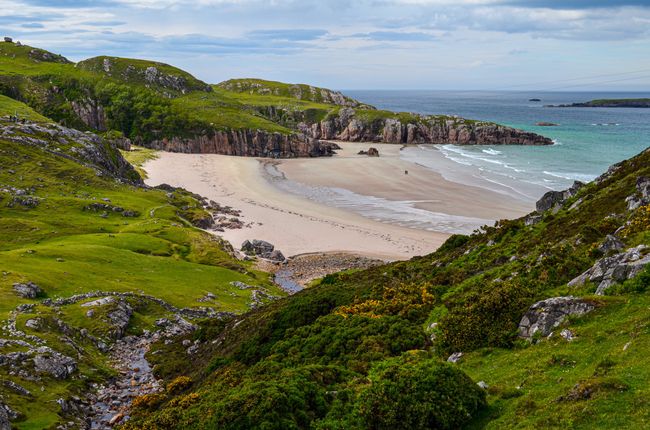
Adroddiadau teithio Deyrnas Unedig
